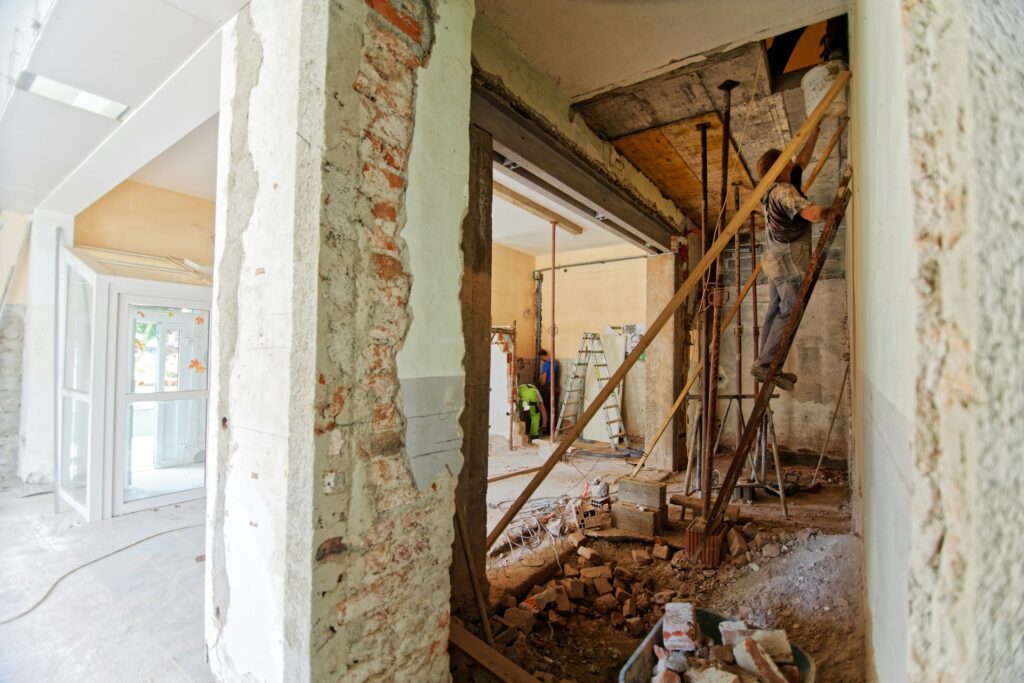
We are reader-supported. When you buy through links on our site, we may earn an affiliate commission.
A contractor’s shoddy workmanship can leave you feeling frustrated and cheated. Fortunately, you have rights as a homeowner in these situations. Whether they overpromised and underdelivered or intentionally cut corners to save money, you have multiple legal avenues.
How to Tell if You’re a Victim of Shoddy Workmanship
Shoddy workmanship is poor-quality work by an unskilled, careless or negligent contractor. It can manifest as disregarded standards, visible flaws, substandard materials or sloppy labor. Common examples include an unfinished roof, exposed wiring, loose floor tiles, leaking pipes or cracked concrete.
Crucially, the legal definition of shoddy workmanship is more complex. It doesn’t count if you paid someone to build a deck but didn’t like the way it looked when it was finished — you must be able to prove that your contractor knowingly violated or failed to meet their contractual obligations. Courts, regulatory agencies and licensing boards will want to see hard evidence.

Suppose you paid your contractor to install ceramic tiles and came home to see workers putting in vinyl. In this scenario, you’re not getting what you agreed on — the person you hired is intentionally breaching your agreement for personal gain. If they don’t correct their mistake after you confront them, you might need to consider taking legal action.
Can You Refuse to Pay a Contractor for Bad Work?
Generally, you have the right to refuse payment for work that violated contractual stipulations, went unfinished, caused collateral damage or used substandard materials. However, we must stress we’re not lawyers — only you and a legal professional can effectively navigate your circumstances. That said, we can provide background information and general tips to help you figure out where to start.
A written contract will simplify this process since it explicitly outlines the contractor’s responsibilities. However, you can take legal action without one since a verbal or implied contract is still legally binding. If you can prove you hired someone for a specific job and that they failed to complete it as requested, a court of law may still side with you. That said, the burden of proof is on you — you must have enough evidence to prove their work is inadequate.
What Are Your Rights as a Homeowner?
In the U.S., you have three avenues if you’re a victim of a contractor’s shoddy workmanship.
Send a Demand Notice Alleging Shoddy Workmanship
A demand notice proves you asked your contractor to fix their shoddy workmanship. They must respond within a specific number of days — it varies by state — and you can accept or reject their offer to repair the work or refund you. In some states, it’s required by law. This document can help you terminate your relationship with them and refuse payment.
Take Your Contractor to Small Claims Court
Unless your written contract has a dispute resolution clause — meaning you must go through arbitration — you can take your contractor to small claims court. There, you can attempt to recover collateral damages, a chunk of your upfront payment or costs incurred from hiring another professional to fix their mess.

Report the Contractor to the State’s Licensing Board
Licensed contractors obtain certifications and credentials through state assessments and training, meaning they answer to a higher power. Go through the state’s licensing board and make a complaint. Inspectors will review the alleged shoddy workmanship and take appropriate action against your contractor.
While going to your state’s licensing board won’t secure you a win in court or guarantee you’ll get your property fixed, it shows how serious you are. This step is vital since your contractor is the only entity besides the legal system that can take action. If the board issues a fine or revokes their license, you may even be able to use that evidence in court.
How a Contractor Could Retaliate if You Refuse to Pay
If you refuse to pay your contractor for shoddy workmanship, you must prepare for them to take legal action. Contractors can place a mechanic’s lien on your home, meaning they gain the legal right to force the sale of your property to compensate for their unpaid work.
On top of potentially forcing foreclosure, a mechanic’s lien can negatively impact your credit score and make it difficult — or impossible — for you to voluntarily sell your property. Of course, this can become a massive issue if you originally contracted work in preparation for a move. You’ll almost always need a lawyer to fight this in court.
How to Dispute a Mechanic’s Lien on Your Property
Again, while we can give you general advice on navigating an invalid mechanic’s lien, we are not legal professionals. You should strongly consider consulting with a local lawyer for the state-specific action you can take.
Dispute the Lien With a Preliminary Objection
Many states allow you to file a preliminary objection to a mechanic’s lien. It’s essentially a move to dismissal on the basis that your contractor failed to comply with the state’s filing deadlines or notice provisions.
In some states, subcontractors and unlicensed contractors cannot claim a mechanic’s lien on residential property. Courts even forbid contractors from filing if the dollar amount of their work is below a certain threshold.

You can also file a preliminary objection if your property is immune or exempt from a mechanic’s lien. If it is considered a homestead or owner-occupied, your state may prohibit liens on it to protect your primary residence.
Go to Court to Prove the Lien Is False or Invalid
You can defend against a lien in court by proving it is deceptive or underhanded. If you have pictures, videos, text exchanges or emails showing the workmanship is shoddy — meaning it falls short of what you agreed upon — you could get the court to throw the lien out.
How to Increase Your Chances of Winning Legal Battles
Take detailed, timestamped photos and videos of your contractor’s shoddy workmanship. This way, you have hard evidence to present in case you end up in a legal battle. Document their use of substandard materials, sloppy execution or subcontractor management to help prove fault.
You should also document when materials are delivered and what work laborers do. Note any discrepancies to establish a timeline, document mistakes and prove items are missing. You should keep all contracts, invoices and communications for the same reason.

You shouldn’t fix any of the contractor’s shoddy workmanship because it may count as “spoliation of evidence” and hurt your chances of winning in court. If whatever work they did has caused collateral damage — meaning issues like water, weather or physical damage — record it. It will act as further evidence of their negligence.
If the issue is something that can’t wait — like a leaky roof or an improperly installed HVAC system — hire a licensed third party to fix it. Also, ensure they sign a statement saying repairs couldn’t wait. You should be able to recoup your losses in court at some point.
How to Prevent This From Happening Again
Nobody wants to be embroiled in a complex, drawn-out legal battle. Pevent shoddy workmanship from costing you time and money in the future. Make sure the contractor you use has a license and well-reviewed. Even then, it would be wise to document every stage of their work, forcing them to go through you to sign off on the next step










